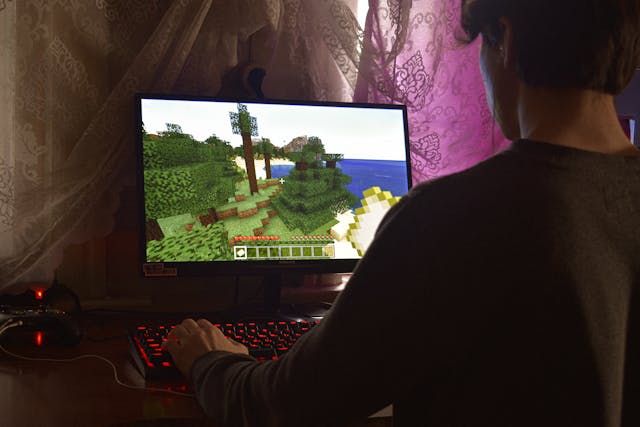When it comes to improving cognitive health, the advice often points toward nature walks, exercise, and puzzles. But what if the key to a sharper memory and better motivation is right in front of us—on our screens? Video games have long been dismissed as mindless entertainment, but growing evidence suggests they can be powerful tools for maintaining brain health, especially as we age. Whether it’s keeping our minds agile during the chilly months or helping recover cognitive function after medical setbacks like a transient ischemic attack (TIA) or stroke, video games may deserve a spot in your self-care routine.
First, let’s tackle memory. Studies have shown that games requiring problem-solving, strategy, and multitasking, such as puzzle games or adventure titles, can improve working memory. These games stimulate the hippocampus, the part of the brain associated with memory formation and navigation. Games like Lumosity or Brain Age were explicitly designed for this purpose, and even mainstream games like The Legend of Zelda or Minecraft have demonstrated similar benefits through their complex problem-solving mechanics. Engaging with such games regularly could be a fun and effective way to stay sharp when icy sidewalks and freezing temperatures make outdoor exploration less appealing.

Motivation is another area where video games shine. The concept of “gamification”—applying game principles to real-world tasks—has been adopted in education and workplace training for a reason. Video games provide clear goals, immediate feedback, and rewards, which create a sense of achievement and motivation. For seniors or anyone feeling the winter blues, completing a level or unlocking an achievement in a game can provide a much-needed dopamine boost. Games like Animal Crossing: New Horizons and Stardew Valley even incorporate nature themes, offering a cozy digital alternative when real gardens are buried under snow.
Now, let’s address the big question: can video games help restore cognitive function after a TIA or stroke? Remarkably, the answer appears to be yes. Research has shown that specific games designed for rehabilitation, such as RehaCom or even standard video games like Wii Sports, can improve motor skills, attention, and memory in stroke survivors. These games provide an interactive way to retrain the brain, requiring players to focus, react, and adapt—all critical for cognitive recovery. Additionally, virtual reality (VR) games are increasingly used in clinical settings to help rebuild neural pathways, providing immersive experiences that can significantly enhance rehabilitation outcomes.

The benefits of video games for cognitive health extend beyond rehabilitation. Multiplayer and cooperative games can reduce feelings of isolation by fostering social connections, even from the comfort of your living room. Moreover, action games, like Call of Duty, have been shown to improve visual attention and processing speed, skills that naturally decline as we age.
While it’s essential to balance screen time with other activities, video games are proving themselves to be more than just entertainment. They are a versatile tool for mental stimulation, emotional well-being, and even physical recovery. So, the next time someone questions why you’re playing games instead of braving the cold for a nature walk, you can confidently tell them you’re levelling up your brain—no frostbite required.
Love Life x
References
- Anguera, J. A., et al. (2013). “Video game training enhances cognitive control in older adults.” Nature, 501(7465), 97–101.
- Palaus, M., et al. (2017). “Neural Basis of Video Gaming: A Systematic Review.” Frontiers in Human Neuroscience.
- Laver, K., et al. (2017). “Is Virtual Reality Effective for Rehabilitation?” Stroke.
- Kühn, S., & Gallinat, J. (2014). “Brain structure and video gaming: A comprehensive review.” Neuroscience & Biobehavioral Reviews.
- Sampedro, D., et al. (2020). “Cognitive rehabilitation using video games after a TIA: A pilot study.” Journal of Neuropsychology.

